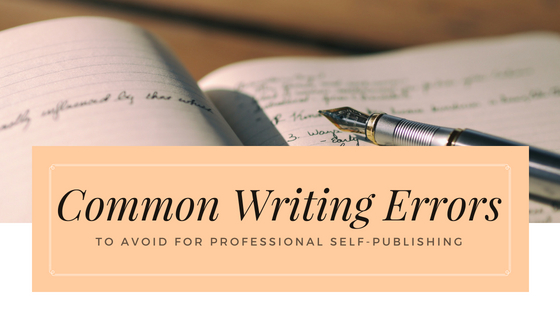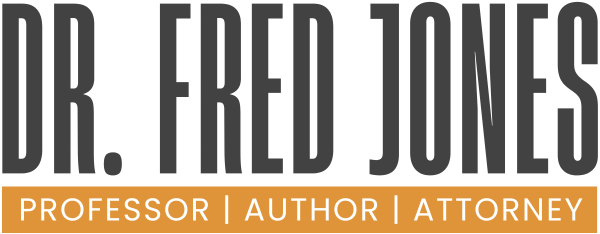
Common Writing Errors to Avoid for Professional Self-Publishing
Creating a professional self-published book is critical. Hence, avoid committing these writing errors when self-publishing.
Most empowered individuals today are aspiring to turn their experiences and wisdom into a book that will touch people’s lives. Since there is a tough competition in traditional book publishing, most aspiring writers resort to self-publishing. Although you becoming a self-publishing author is no longer impossible and a seemingly great career choice, it requires time and practice to polish your writing skills.
You can compare your self-published book to your business card. Just like the latter, your book will leave a lasting impression on your readers. Your self-published book is your face in the business so it has to look professional. However, some self-publishing authors are guilty of these common writing errors which make their books look amateur.
These Writing Errors Make You Look Unprofessional
Make sure you’re not guilty of these common writing errors:
-
Inappropriate use of abbreviations
Professional self-publishing authors use abbreviations sparingly. The APA (American Psychological Association) states that inappropriate use of abbreviations will confuse readers. However, it doesn’t mean that you should avoid using abbreviations instead learn how to use them effectively.
You need to identify an abbreviation before using it by defining it the first time you use it in the text. Some self-published authors use the abbreviation in the text before giving definition. Take note that not all your readers are specialists in the field you are writing. Avoid confusing them with a similar abbreviation in a different field.
When using the abbreviation, you must define it only once on its first appearance in the text. For example, you will use the abbreviation of United States. On its first appearance, write out the United States and follow with the abbreviation in parentheses, just like below;
How many people live in the United States (US)?
On the next section of your book, you can use the US to refer to the United States.
-
Passive Voice
Let’s define passive and active voices. An active sentence makes the person of the action comes first while a passive sentence adds the person of the action at the end. Although passive voice is not a grammatical error and may often use effectively than active voice, the improper use of passive sentence can make your self-published book unprofessional.
I always tell self-publishing authors to use active voice than passive voice. You want to publish a book that will impact your readers and one way of doing that is to employ powerful sentences. Active voice makes your sentences clear and conscience. It makes your reasoning stronger than using passive voice.
-
Use of contractions in formal writing
Contractions refer to the shortened form of two words using an apostrophe. For example, “It’s” is the contraction of “it is”. The use of contractions produces flowing and easy sentences. However, contractions are ideal for informal writing.
I strongly recommend self-publishing authors to refrain from using contractions in scholarly/formal writing. To keep the formal tone of your book, you should avoid using contractions.
-
Overly use of italics and underline
Self-publishing writers use italics and underline as tools for emphasis. However, there are overemphasize-writers that can’t get enough of italics and underline.
I understand how they strongly feel to make a point by using these two but please don’t be one of them.
Overly use of italics and underline wear down your reader’s eyes and patience. The truth is that professional self-publishing writers underline words to inform the printer that those words should be in italic type. In reverse, underline italic words means that the writers want the words to be in regular form. You cannot use both in making emphasis.
-
Use of comma in a series
Professional writers use a comma to separate elements in a series. The tricky part is whether to use a comma before “and” in a series or not.
You can do either of the two.
He brought his books, pens, and a lunch.
He brought his books, pens and a lunch.
The answer to this is consistency. If you are using a comma before “and” in a series, then always use it when writing a series.
-
Capitalizations
You might be telling yourself that the rules in capitalization are so simple yet many are still making mistakes on this. Capitalization is writing the first letter in uppercase and the rest in lowercase. You use it in the first word of a sentence, proper nouns and in titles. However, amateur writers freely capitalize any words that they think are important.
Some rules in capitalizations are as follows;
- Capitalize months and days but not seasons
- Capitalize brand names but not food
- Capitalize planets but not heavenly bodies like sun and moon
Get grammar sheets online when in doubt.
-
Wordiness
Wordiness can impede your readers’ understanding. Too much use of words may lose your message.
As an aspiring professional self-publishing writer, learn how to cut unnecessary words in your book. Delete right away redundant phrases and words like “basically”, “really”, “very”, and “in order to”. Also, avoid common phrases like “on the other hand,” in spite of the fact that”, “in order to”, and “on the other hand”.
Make your self-published book professional
The most common complaints on self-published books include these common writing mistakes. If you’re getting ready to publish your book, you need to make sure you didn’t commit the above errors. I understand that as you write down all your thoughts and ideas, you tend to get lost in writing. Before you publish your book, allow our book team to refine your manuscript and make it professional. Our book coaching programs helps self-publishing authors finish their best-selling books.
Get a complementary book strategy session with Dr. Fred now!
_______________________________________________________________________________________________________
